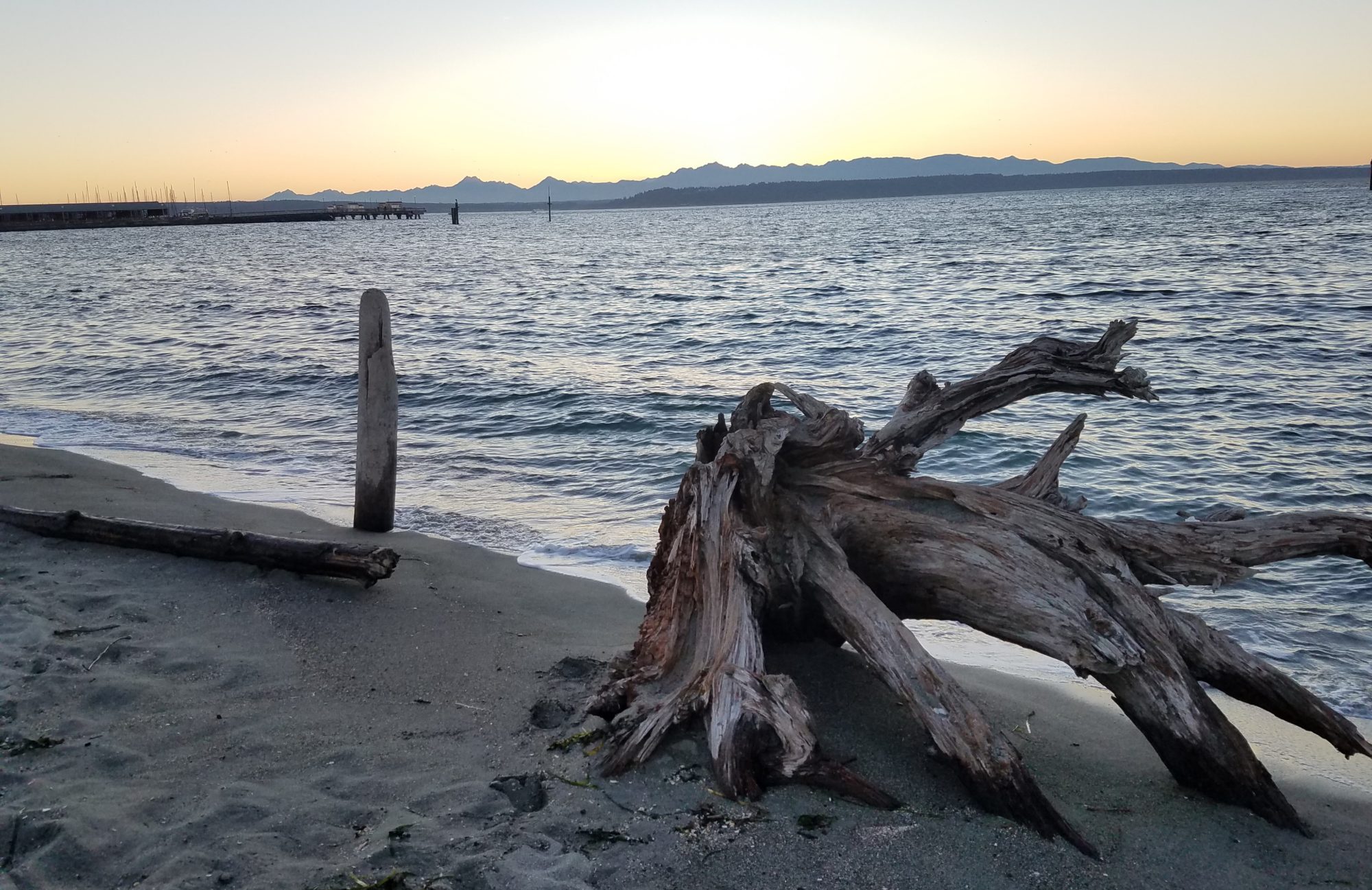Dear friends,
I have just returned from a profound experience in the Middle East during which we heard the stones speak of ancient cultures and sacred events. On my way back home, I read an excerpt from Robin Wall Kimmerer’s book “Braiding Sweetgrass” called “Learning the Grammar of Animacy.”
Today, I wanted to share with all of you this idea of recognizing and hearing the vibrancy and life force in everything that surrounds us. Kimmerer notes that in the language of the Western world, we emphasize nouns and objects, thus allowing ourselves to separate, objectify, exploit, and use up nearly everything we encounter.
However, in her native language and in most indigenous language, the emphasis is on verbs. For instance the word for Bay in her language actually translates as ‘being a Bay.’
So the way our indigenous people here in the Northwest might refer to the Salish Sea on which we all depend is ‘being the Sea.’
Why does this matter? Because, by recognizing that these entities that surround us are not dead objects, but living energetics we can no longer use them without knowing that we are exploiting a living being.
Kimmerer says it best:
“A bay is a noun only if water is dead. When bay is a noun, it is defined by humans, trapped between its shores and contained by the word. But the verb wiikwegamaa – to be a bay – releases the water from bondage and lets it live. “To be a bay” holds the wonder that, for this moment, the living water has decided to shelter itself between these shores, conversing with cedar roots and a flock of baby mergansers. Because it could do otherwise – become a stream or an ocean or a waterfall, and there are verbs for that too. To be a hill, to be a sandy beach, to be a Saturday, all are possible verbs in a world where everything is alive.
“… in Potawatomi and most other indigenous languages, we use the same words to address the living world as we use for our family. Because they are our family.”*
As we walk in the forest or wild areas, this concept is easier to feel and hear but we can also find this aliveness and hear the voice of the living energies in the urban environments if we take the time and allow ourselves to sink into the deep awareness of our living world. I offer you all the encouragement to try listening to your world in this way, and report back in the comments how it has affected your perception of the world.
Kimmerer notes that when you find yourself in that place of remembering that we are not separate, you suddenly know that you are never alone. All around you are living teachers ready and willing to share their wisdom. What a sweet and beautiful thing to remember!
I end this post with this beautiful paragraph from the beginning of the Kimmerer piece that demonstrates this way of hearing life:
“I come here to listen, to nestle in the curve of the roots in a soft hollow of pine needles, to lean my bones against the column of white pine, to turn off the voice in my head until I can hear voices outside it: the shh of wind in needles, water trickling over rock, nuthatch tapping, chipmunks digging, beechnut falling, mosquito in my ear, and something more – something that is not me, for which we have not language, the wordless being of others in which we are never alone. After the drumbeat of my mother’s heart, this was my first language.”*
*Robin Wall Kimmerer, “Learning the Grammar of Animacy,” Braiding Sweetgrass: Indigenous Wisdom, Scientific Knowledge, and the Teachings of Plants (Minneapolis, MN: Milkweed Editions, 2013)
